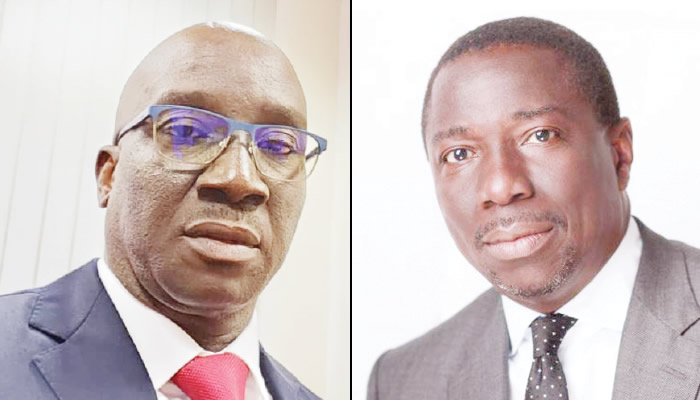The Edo State Governorship Election Petition Tribunal in Abuja witnessed the commencement of the All Progressives Congress (APC)’s defense of its declared victory in the September 21, 2024, election. The APC presented four witnesses, all of whom served as collation agents for the party in various local government areas during the contested election. The witnesses’ testimonies, however, contained significant admissions of over-voting, a key point of contention in the petition filed by the Peoples Democratic Party (PDP) and its governorship candidate, Asue Ighodalo. The PDP is challenging the Independent National Electoral Commission’s (INEC) declaration of APC candidate, Monday Okpebholo, as the winner of the governorship election. The four witnesses represented Esan North East, Akoko Edo, Oredo, and Owan West Local Government Areas respectively, providing a geographically diverse perspective on the election proceedings.
The witnesses’ admissions of over-voting emerged primarily during cross-examination by the petitioners’ counsel, Mr. A. J. Owonikoko (SAN). Afuda Theophilus, the APC collation agent for Esan North East, initially denied over-voting in his prepared statement but later acknowledged its occurrence in his polling unit when confronted with discrepancies in election documentation. He highlighted the need for the BVAS report to substantiate the over-voting claims and mentioned that INEC had cancelled results from affected polling units. Similarly, Engr. Gabriel Iduseri, the APC collation agent for Oredo LGA, initially downplayed complaints about the election conduct but subsequently admitted to the cancellation of results from Unit 8, Ward 10 due to over-voting. He clarified that the cancelled results were excluded from the final tally announced by INEC.
The remaining two witnesses presented contrasting accounts. Kamarudeen Bello, representing Akoko Edo LGA, maintained that no over-voting occurred in his area. Frank David, the collation agent for Owan West, initially asserted the accurate collation of results in his jurisdiction. However, under cross-examination, he admitted to instances of over-voting leading to result cancellations. Despite confirming his presence throughout the collation process, David could not verify INEC’s adherence to all procedures for documenting sensitive election materials, raising further questions about the integrity of the process. The inconsistencies and admissions from the APC’s own witnesses provided potential support for the PDP’s allegations of irregularities impacting the election outcome.
Following the testimony of the four witnesses, the APC counsel requested an adjournment, explaining that subsequent witnesses would rely on documents not yet tendered before the tribunal. This request signaled a strategic move by the APC’s legal team to organize and present their evidence systematically. The counsel indicated the preparation of a schedule of witnesses and documents to be shared with the petitioners’ team later that evening. The APC’s approach sought to streamline the proceedings and ensure all necessary materials were available for scrutiny, while also aiming to maintain an element of surprise regarding their remaining witnesses.
The petitioners’ counsel, in response, sought clarification regarding the remaining witnesses and any new documents to be introduced. Having received a list of 28 potential witnesses the previous day, they emphasized the importance of understanding the scope and nature of the remaining testimonies for adequate preparation. This request for clarity reflected the petitioners’ commitment to thorough cross-examination and their aim to uncover any further discrepancies or irregularities in the APC’s defense. The exchange underscored the legal maneuvering and strategic considerations inherent in election petition proceedings.
The APC, while acknowledging the petitioners’ request for clarity, assured them of no surprises, promising to provide all relevant details and documents beforehand. The tribunal, after considering the arguments from both sides, granted the APC’s request for adjournment, scheduling the next hearing for the following day. This adjournment allowed both parties time to prepare for the next stage of proceedings and gather the necessary materials. The tribunal’s decision facilitated a more organized presentation of evidence and ensured a fair and transparent process for all parties involved. The stage was set for the continuation of the legal battle over the Edo governorship, with the APC’s remaining witnesses and the documents they would present holding the potential to significantly influence the tribunal’s final determination.


